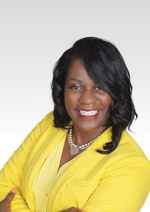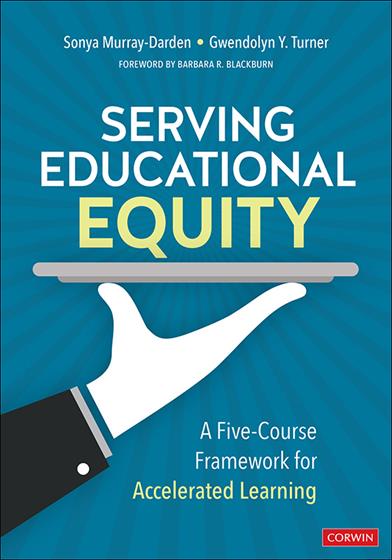
Sonya Murray-Darden
My "why" has evolved throughout my experience serving students in numerous educational settings as a professional developer, classroom teacher, leadership coach, reading specialist, administrator, and researcher. But no experience entirely shaped my why, like losing my former student who was shot and killed in Ferguson, Missouri. His death would spark public protests, social unrest, and outrage within my community and beyond, forcing much-needed conversations across the country about the role of social justice in schools.
Mike was a gentle soul who loved math and was part of my reading club. There was much in the news media about his tragedy, but what I knew as his former teacher was that he loved math even after graduating from high school. I wanted to think the teaching and learning he received, and the information I poured into him as a student, influenced his love of mathematics. Ironically, his tragedy occurred the same day I graduated from college with an advanced degree, causing me to reflect deeply on the external and internal influences of teaching and learning and my personal "why." As I pondered the many sacrifices of my parents and teachers, I concluded that the work of equity is about using education as a vessel to change lives. The educators I encountered influenced my life trajectory and educational experiences. My path began as a student in an urban school district with teachers who cared and provided the foundational learning I needed to succeed, but I didn't live in an area where schools were "considered" the best. My mother decided to transition my siblings and me to a desegregated school by eighth grade, riding a school bus for nearly an hour each way to a new school community. This community was very different from where I was raised and was considered "a better educational opportunity."
As I traveled across town to a school that offered more opportunity and access, the program offerings were better, but I felt isolated. I was invisible. The experience helped me understand the difference between "intent" and "impact." The school was challenging and rich in experiences, intending to diversify educational experiences for all students by offering more opportunities, yet the impact was a stifled voice. I quickly learned that serving equity requires elevating the voice of the underserved, choosing the right curriculum, understanding the impact of external influences, building relationships, and reflecting on the instructional decisions we implement when we elevate students' possibilities.
Ultimately, I founded Equity Matters Consulting, a consulting company focused on helping educators advance education by giving students a voice and a seat at the table. Our team focuses on adult learning theory to disrupt the status quo in schools and organizations using a practical, inspirational approach. I began testing parts of the serving educational equity framework with practitioners over the past few years. I assembled strategies from our recent day-to-day consulting experiences with schools and organizations to offer as best practices in this book.
Educational equity shines a spotlight on our expectations and asks us to reflect on how we hinder or elevate opportunities for students to have a better life. We should center a vision of excellence for every child, no matter their zip code, background, or linguistic ability. Our book supports practitioners with resources to operationalize educational equity using actionable practices that ensure educational equity for all students.
Books
This is a carousel with book cards. Use the previous and next buttons to navigate.

